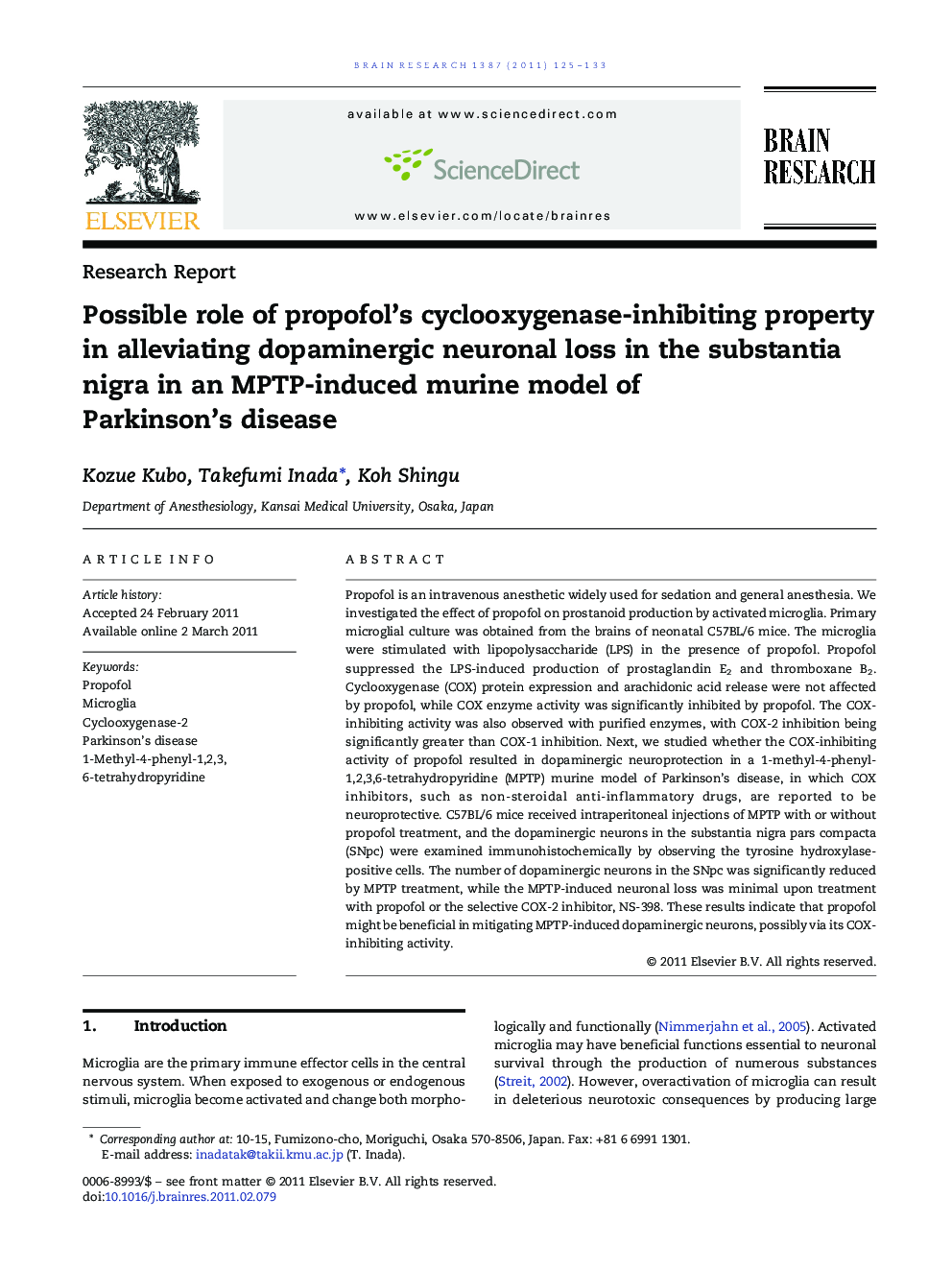| کد مقاله | کد نشریه | سال انتشار | مقاله انگلیسی | نسخه تمام متن |
|---|---|---|---|---|
| 4326003 | 1614052 | 2011 | 9 صفحه PDF | دانلود رایگان |

Propofol is an intravenous anesthetic widely used for sedation and general anesthesia. We investigated the effect of propofol on prostanoid production by activated microglia. Primary microglial culture was obtained from the brains of neonatal C57BL/6 mice. The microglia were stimulated with lipopolysaccharide (LPS) in the presence of propofol. Propofol suppressed the LPS-induced production of prostaglandin E2 and thromboxane B2. Cyclooxygenase (COX) protein expression and arachidonic acid release were not affected by propofol, while COX enzyme activity was significantly inhibited by propofol. The COX-inhibiting activity was also observed with purified enzymes, with COX-2 inhibition being significantly greater than COX-1 inhibition. Next, we studied whether the COX-inhibiting activity of propofol resulted in dopaminergic neuroprotection in a 1-methyl-4-phenyl-1,2,3,6-tetrahydropyridine (MPTP) murine model of Parkinson's disease, in which COX inhibitors, such as non-steroidal anti-inflammatory drugs, are reported to be neuroprotective. C57BL/6 mice received intraperitoneal injections of MPTP with or without propofol treatment, and the dopaminergic neurons in the substantia nigra pars compacta (SNpc) were examined immunohistochemically by observing the tyrosine hydroxylase-positive cells. The number of dopaminergic neurons in the SNpc was significantly reduced by MPTP treatment, while the MPTP-induced neuronal loss was minimal upon treatment with propofol or the selective COX-2 inhibitor, NS-398. These results indicate that propofol might be beneficial in mitigating MPTP-induced dopaminergic neurons, possibly via its COX-inhibiting activity.
Research highlights
► Propofol inhibits microglial prostanoids production by COX-2 activity inhibition.
► Propofol alleviates microglial activation in the MPTP-induced murine PD model.
► Propofol reduces dopaminergic neuronal loss possibly by COX activity inhibition.
Journal: Brain Research - Volume 1387, 28 April 2011, Pages 125–133